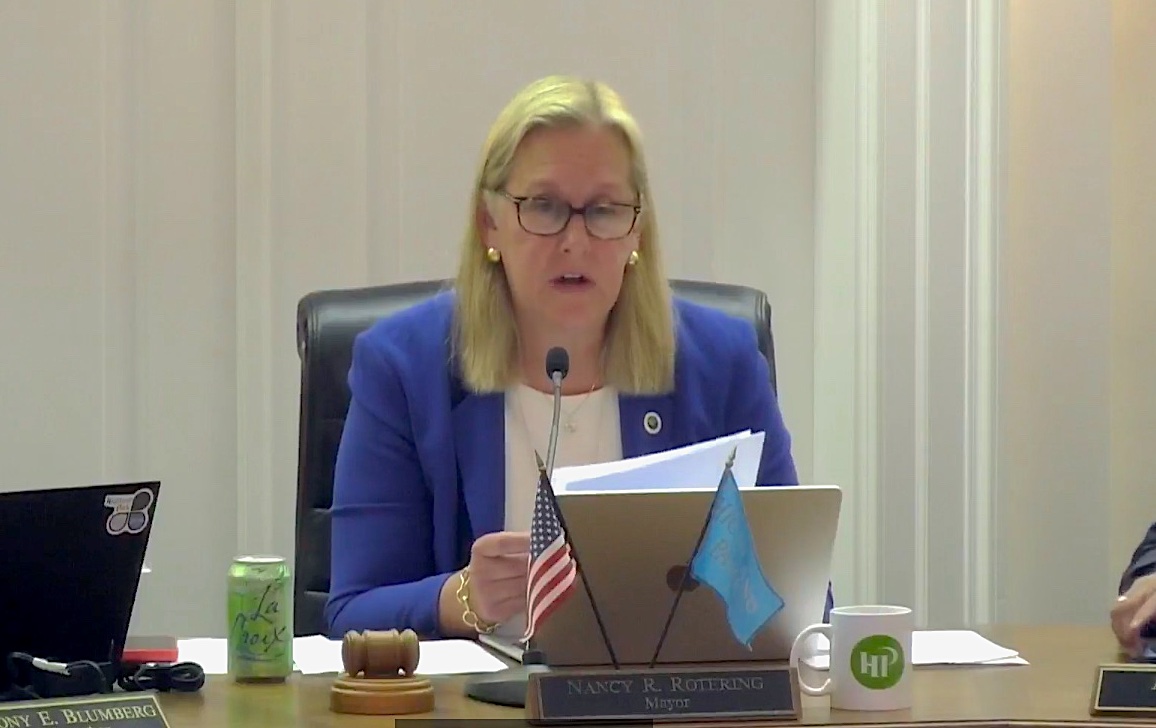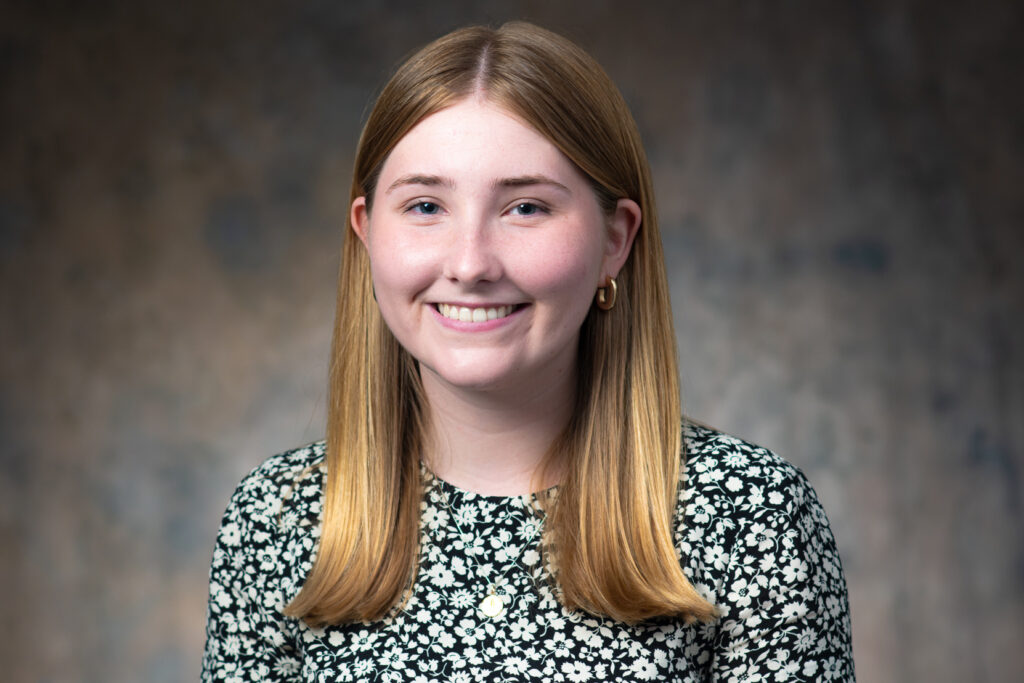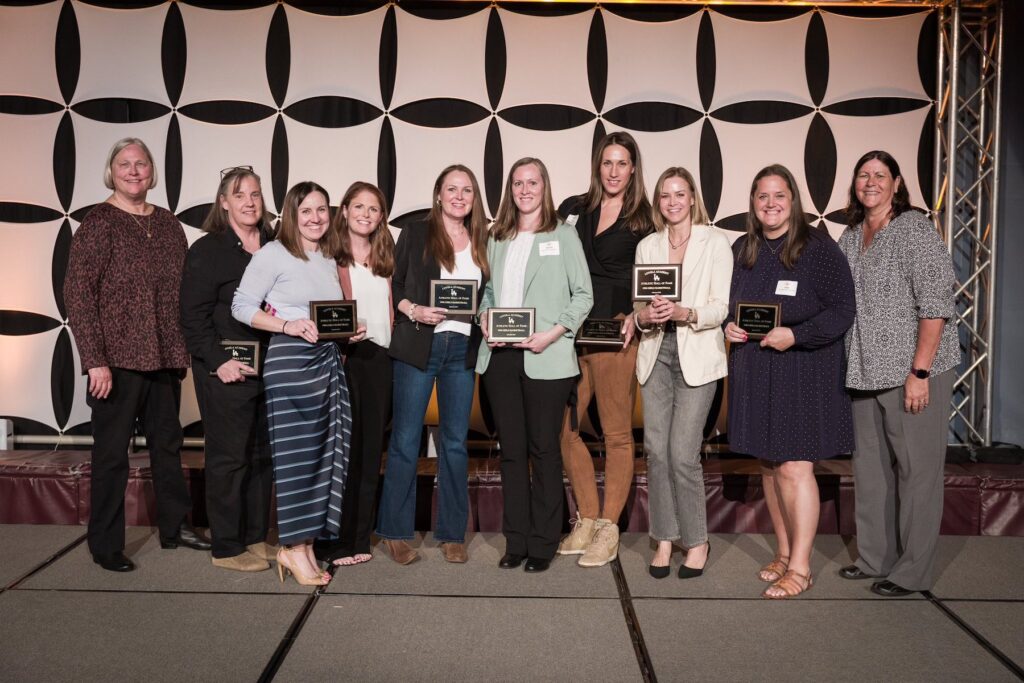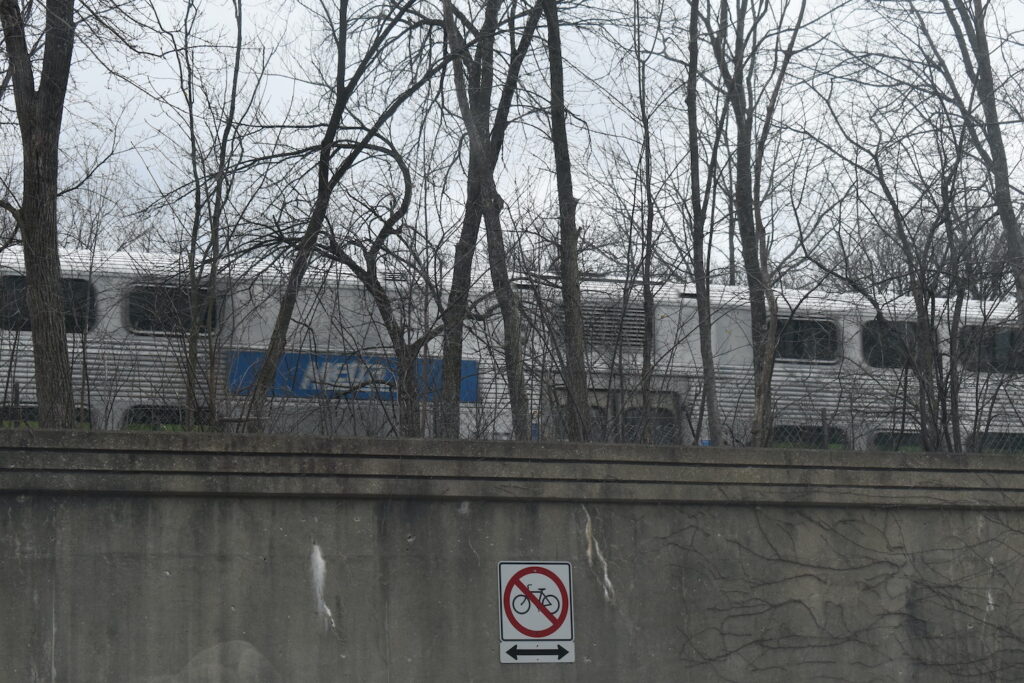
Highland Park explores new policies in wake of chalk messages, overnight protest at lawmaker’s home
For just over two weeks, multiple pro-Palestinian demonstrations in Highland Park have drawn complaints from community members and concern from city officials. The tension found its way to the City Council on Monday.
During the council’s Committee of the Whole meeting, Mayor Nancy Rotering and City Manager Ghida Neukirch led a conversation weighing the city’s options for responding to such demonstrations in the future. The council was also joined by Hart Passman, a partner of Elrod Friedman and a legal representative for Highland Park, as it discussed possible new regulations such as banning nighttime protests, neighborhood protests and mask wearing.
“We each, and I mean this from the bottom of my heart, want to do whatever we can to mitigate any threats, any intimidation,” Rotering said. “Today we are here to discuss policies aimed at enhancing the safety and security of this, our community. … We will embark on a policy conversation regarding how we can make sure that efforts to intimidate and threaten our community are halted as quickly and expediently as possible within the purview of the law.”
The primary driver of the conversation was a protest that began around 2:30 a.m. on June 29, when a pro-Palestinian group made its way to U.S. Rep. Brad Schneider’s home in Highland Park, as previously reported by The Record. Woken by chanting and drumming, neighbors called Highland Park police.
Police Chief Lou Jogmen presented the council with the timeline of events that occurred and shared that police swiftly responded, and by 3:30 a.m. the protesters were leaving the scene in their vehicles. While the protesters were violating local laws, including the city’s nuisance ordinance, no arrests were made. According to Jogmen, the eight officers on the scene prioritized de-escalation methods, including speaking with the demonstration leaders to clear the area.
Additional incidents occurred on July 5 and 10 when an individual or individuals used chalk to write what community members viewed as “inflammatory” language in Highland Park’s downtown area, according to a city statement on July 5.
During the July 15 conversation, Neukirch emphasized the importance of public communication from the city in these events. She then briefed the City Council on current local and state regulations that were impacted during the protest. The meeting then opened for discussion, during which Neukirch presented several possible additional policy considerations to combat late-night protests.
“We cannot regulate speech on the basis of content; the time, place and manner we can,” Passman told the council before laying out the three standards for regulating speech: the regulation must be justified without reference to the content of the speech, the regulation has to be narrowly tailored to serve a significant government interest and there must be alternative channels for speech.
The first policy the council discussed was to establish a local prohibition on protesting in front of a residence or in a residential district. State law already prohibits picketing at a residence. According to Neukirch, a local law could help with enforcement, and the council could advance beyond state law to restrict picketing in residential areas, like those surrounding schools. The council supported the proposal.
Another idea, which was also supported by the council, was to prohibit all protests from dusk to dawn. The council discussed how this protest went against the nuisance ordinance in Highland Park and how further amendments can limit disruptions based on the city’s curfew or nuisance ordinance.
A smaller resolution sought to increase fines for blocking a street or sidewalk. According to Neukirch’s presentation, the current fine typically ranges from $25 to $50 but can go up to $1,000. The council also supported this measure, with Rotering proposing that the city double the fines.
The council discussed the prohibition of masks for any rallies or protests. If pursued, the council would need to further narrow the expectations that would be made for religious or medical purposes. Many protesters seen outside Schneider’s home reportedly wore face coverings.
Council members debated the idea of a mask prohibition. Multiple said that they do not want the city of Highland Park to be the test case for a mask law; however, Rotering and Councilmembers Anthony Blumberg, Annette Lidawer and Barisa Meckler Bruckman supported the idea. Bruckman felt that this prohibition could help police.
On the other side, Councilmembers Andrés Tapia, Kim Stone and Yumi Ross disagreed with the proposal.
“I do not want to be a part of something that prohibits people from protecting themselves from these totalitarian tendencies in the general political environment, and us being the case study for that,” Tapia shared.
The council also considered requiring notice and permits for protests, rallies and written demonstrations such as chalking.
Neukirch and several council members feared that requiring permits could lead the city into an uncomfortable position where officials may have to approve permits for causes that don’t align with the good of the community. Instead, councilmembers discussed ways in which they can ensure that the city is notified of large gatherings as a way to prepare resources and keep residents informed.
Lastly, the council looked at different ways to regulate the use of water-based chalk. The council did not support resolutions to treat chalking as graffiti or prohibit chalking in all business districts. Officials said the community has come to use chalking in the downtown area as a form of community spirit, and the council did not want to undermine the activity.
The conversation continued into the City Council’s subsequent regular meeting on Monday. During public comment, many residents spoke on their experiences of being Jewish in Highland Park and urged the council to increase safety measures to protect against late-night disruptions such as the one on June 29.
“Six of the seven council members are Jewish,” Rotering said, opening the meeting by addressing the residents. “Individually and collectively, we deeply feel the pain, the hurt, the fear, the anger, that comes with generational trauma.”
Rotering explained that nearly every representative at that table had experienced similar hardships: One member is the child of a holocaust survivor and an Israeli; Councilmember Andres Tapia grew up in a country under a military dictatorship; Neukirch wears a piece shrapnel from the bomb that destroyed her home in her native country of Lebanon during a civil war and also wears a bracelet in support of Israel; and Jogmen’s father was held hostage and shot, being left in a coma as a child.
The council tabled the discussion to a future Community of the Whole session, where officials hope to discuss more a precise plan to regulate future protests.
The Record is a nonprofit, nonpartisan community newsroom that relies on reader support to fuel its independent local journalism.
Become a member of The Record to fund responsible news coverage for your community.
Already a member? You can make a tax-deductible donation at any time.

Cleo Pool
Cleo Saliano Pool is the 2024 Record Intern and an incoming senior at American University, studying journalism and graphic design. She recently worked for the Investigative Reporting Workshop, where she developed her passion for nonprofit news. Born and raised in Wilmette, Cleo loves reporting local news and connecting with her community.


